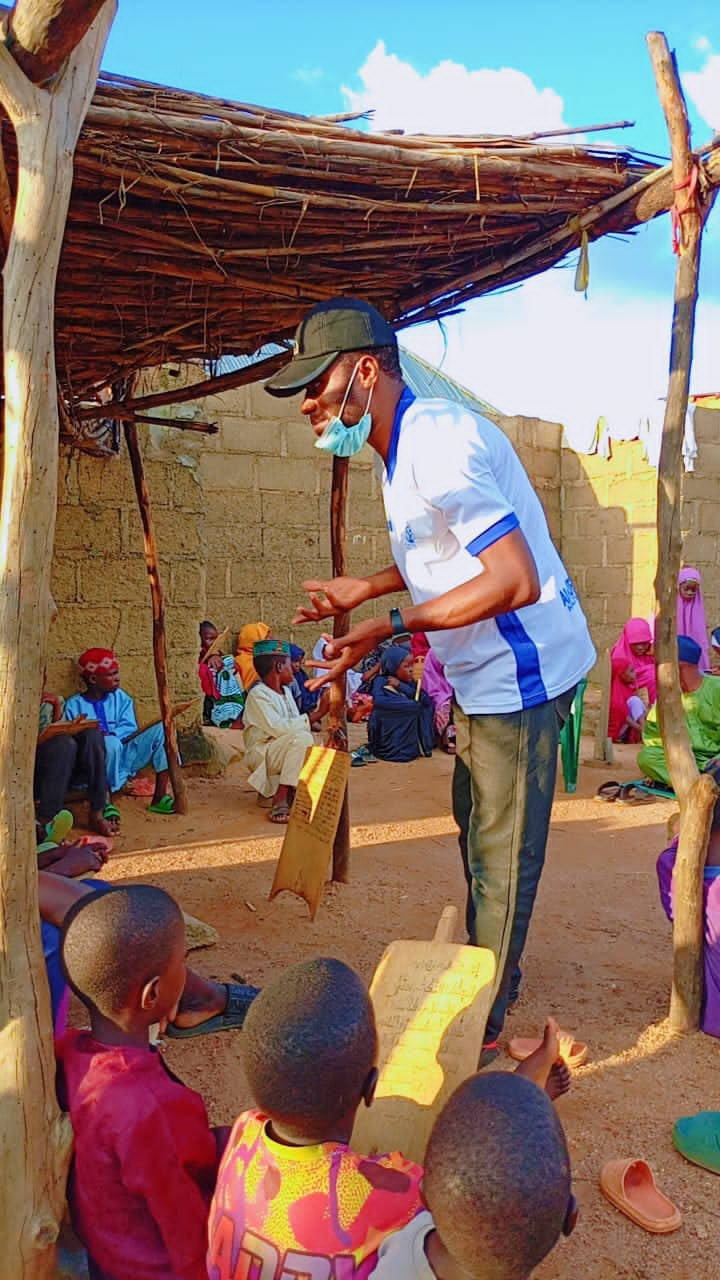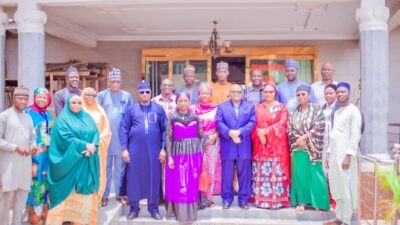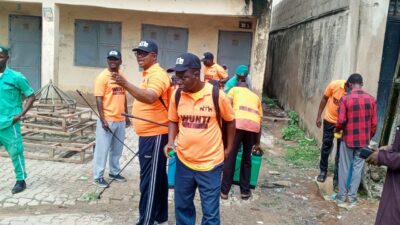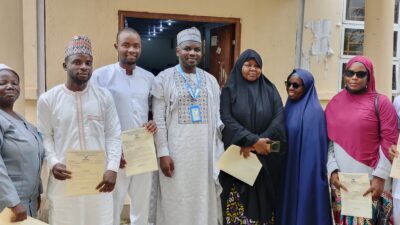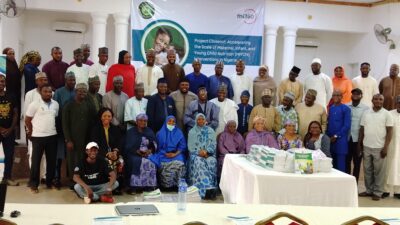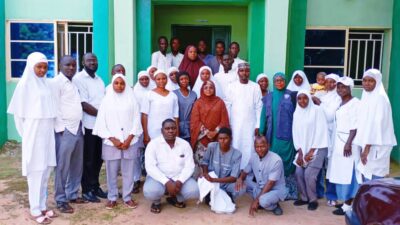By Sahel Reporters Bauchi
In a concerted effort to improve community health outcomes and bridge the gap in hygiene education among vulnerable populations, Al-Mufeed Community Health Support Initiatives, a frontline non-governmental organization based in Northern Nigeria, has launched a grassroots sensitization campaign across Islamic learning centres (Tsangaya schools) in Bauchi State.
The intervention—part of Al-Mufeed’s broader community health outreach framework—is tailored to address critical public health challenges in low-resource, non-formal educational settings where children often lack access to clean water, sanitation facilities, and basic health knowledge.
The campaign, which aligns with the United Nations Sustainable Development Goals (SDGs) on Good Health and Well-being (SDG 3) and Clean Water and Sanitation (SDG 6), focused on raising awareness about hygiene, disease prevention, and safe environmental practices among students and clerics in traditional Islamic schools.
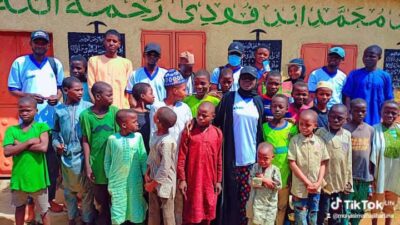
Led by the Executive Director, Suleiman Abubakar Ahmad, the Al-Mufeed team carried out sensitization visits to the Sheikh Kabiru Yakubu Arabi Islamic School in Bauchi metropolis and the Malam Hussaini Islamic Centre in the Gwallagar Mayaka community—both of which serve large populations of at-risk and underserved children.
“We recognize that many of these children are cut off from mainstream health education,” Ahmad said. “Our mission is to ensure they are not left behind in acquiring life-saving knowledge that can protect them from preventable diseases and health risks.”
Hands-On Education for Lifesaving Change
The outreach activities included:
Demonstrations on proper handwashing techniques using clean water and soap
Education on water purification and safe drinking habits
Training on environmental sanitation and waste disposal
Instructors and caregivers at the schools were also trained to reinforce health messaging during their regular teachings, thereby promoting sustainable behavior change within the learning communities.
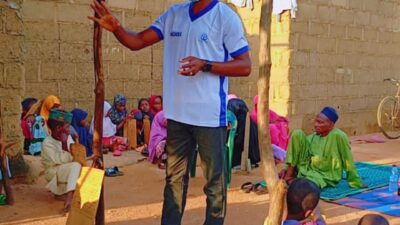
The Executive Director called on relevant government ministries—especially those of Health, Education, Water Resources, and Humanitarian Affairs—to recognize and support the inclusion of non-formal education settings in national health policies and WASH (Water, Sanitation, and Hygiene) programming.
“It’s time to build bridges between formal systems and informal institutions like the Tsangaya schools,” Ahmad added. “We are calling on development partners, philanthropists, UN agencies, and donor organizations to collaborate with us in scaling these interventions.”
According to Al-Mufeed, long-term impact will require investment in the provision of clean water sources, sanitary toilet facilities, and continuous community-led hygiene promotion in Tsangaya schools across Northern Nigeria.
The initiative has been well-received by community leaders, Islamic clerics, and school administrators who commended Al-Mufeed’s culturally sensitive and inclusive approach.
“This is the first time our pupils are receiving practical health education of this kind,” said one school leader. “It’s an eye-opener, and we hope this support continues.”
Community engagement, the organization emphasized, is central to the success of such programs. By partnering with local leaders and integrating cultural and religious values into the training, Al-Mufeed is ensuring both acceptance and sustainability.
The hygiene awareness campaign forms part of Al-Mufeed’s long-term vision of improving public health literacy and ensuring that every child, regardless of socioeconomic status or educational background, has access to critical health knowledge and resources.
As Nigeria continues to tackle public health inequities, Al-Mufeed’s work stands as a compelling model for inclusive, low-cost, high-impact community health intervention.
Al-Mufeed Community Health Support Initiatives invites stakeholders, development partners, WASH donors, INGOs, and government agencies to collaborate in scaling this program to reach more vulnerable communities across the region.

